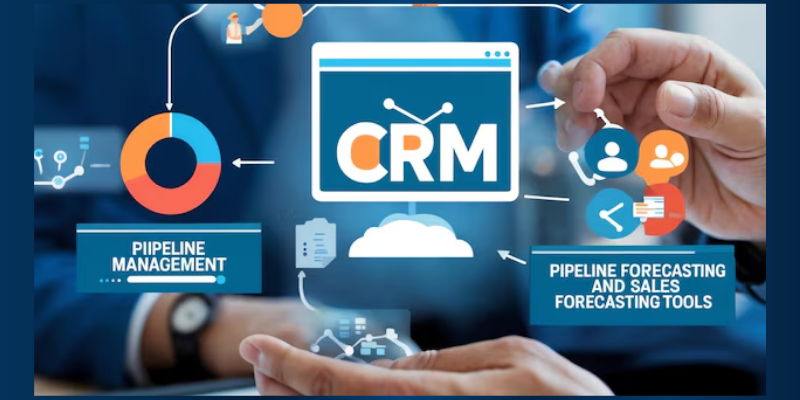
In the fast-evolving digital landscape, businesses must ensure that their Customer Relationship Management (CRM) systems are scalable, reliable, and efficiently deployed. Developers using the Model-View-Controller (MVC) framework often face challenges when it comes to deploying CRM applications. By integrating VMware’s virtualization technology, deployment can be streamlined, offering enhanced performance, scalability, and reduced downtime. This blog will explore how MVC developers can leverage VMware to simplify and optimize the deployment of CRM solutions, particularly in Microsoft Dynamics CRM environments.
Understanding the MVC Framework
The MVC architecture is a widely-used design pattern that separates application concerns into three interconnected components: Model, View, and Controller. Many CRM platforms, such as Microsoft Dynamics CRM, rely on a combination of server-side and client-side logic. MVC pattern provides a structured way to manage these interactions, enabling faster development, improved code reusability, and more scalable applications. For developers who have undergone MVC Classes in Chennai, implementing this design pattern in CRM systems leads to more robust solutions, but deployment challenges remain, especially as applications grow in size and complexity.
Why Streamlining CRM Deployment Matters
In a competitive business environment, systems must be reliable and efficient. However, traditional deployment methods can result in downtime, increased operational costs, and complex maintenance procedures. These inefficiencies can have a negative impact on business performance, particularly in customer service and data management.
By leveraging VMware technology, businesses can virtualize their CRM environments, allowing developers to deploy applications quickly and efficiently. Virtualization technology, providing powerful tools that help organizations reduce hardware dependency, improve resource allocation, and scale their applications effortlessly.
Streamlining CRM Deployment with VMware
Here’s how MVC developers can streamline CRM deployment using VMware:
1. Virtualizing the Development Environment
The first step in streamlining deployment is virtualizing the development environment. VMware allows developers to create environments where they can build, test, and deploy applications without impacting the live system.
By using VMware Online tools, developers can quickly provision virtual machines (VMs) that mirror the production environment. This enables them to simulate real-world scenarios, ensuring the application will run smoothly once deployed. Virtualizing the development environment also helps in isolating issues and troubleshooting without affecting the entire system.
2. Automating Deployment with VMware vSphere
VMware vSphere is a powerful platform that enables developers to automate the deployment of CRM systems. With vSphere, developers can deploy CRM applications in a matter of minutes, reducing the time required for manual setup and configuration.
Automating deployment through vSphere also ensures that the CRM application is consistently deployed across multiple environments. This reduces the chances of error and ensures all necessary components, such as databases and web services, are correctly configured.
For developers trained in VMware Training in Chennai, utilizing vSphere’s automation capabilities simplifies complex deployment processes, allowing them to focus more on building and improving the CRM system rather than managing infrastructure.
3. Scaling Systems with VMware vCloud
As businesses grow, their systems must be able to handle increased traffic and larger data volumes. VMware vCloud provides scalable infrastructure solutions that allow MVC developers to easily expand their systems.
With vCloud, CRM systems can be scaled up or down as needed, without the need for additional physical hardware. This ensures businesses can handle peak loads , such as product launches or marketing campaigns, without experiencing system slowdowns or crashes.
Developers who have undergone Microsoft Dynamics CRM Training in Chennai can also integrate Dynamics CRM with vCloud, making it easier to manage customer data and ensure that the CRM system performs optimally, regardless of the workload.
4. Ensuring High Availability and Disaster Recovery
One of the biggest concerns for deployment is ensuring system uptime and data availability. VMware provides powerful tools for ensuring high availability and disaster recovery in CRM environments.
With VMware vSphere High Availability (HA), developers can set up failover systems that automatically switch to a backup server in the event of a hardware failure. This ensures that the system remains available, even in the event of a system failure. VMware vCenter Site Recovery Manager (SRM) allows businesses to set up comprehensive disaster recovery plans, ensuring that data can be quickly restored in the event of a disaster.
The Role of Soft Skills
While technical knowledge is essential, soft skills play an important role in successful CRM deployment. Communication, problem-solving, and teamwork are key to ensuring that all stakeholders are aligned and that the deployment process runs smoothly. Soft Skills Training in Chennai helps developers and IT teams work collaboratively, making it easier to address any challenges that arise during deployment.
Enhancing Deployment with Video Tutorials
For developers looking to improve their CRM deployment skills, online resources such as Video Editing Course in Chennai can be invaluable. Creating video tutorials and documentation can help streamline future deployments by providing a clear step-by-step guide for other team members.
Streamlining CRM deployment is critical for businesses that want to maintain high levels of customer service and data management. By combining the flexibility and scalability of VMware with the MVC framework, developers can ensure that CRM applications are deployed efficiently, with minimal downtime and maximum performance.
For developers who have undergone MS Dynamics CRM, leveraging VMware’s suite of tools—such as vSphere, vCloud, and Site Recovery Manager—offers numerous benefits, including automation, scalability, and disaster recovery. Additionally, integrating soft skills and utilizing video editing resources can further enhance the deployment process, making it smoother and more collaborative.
